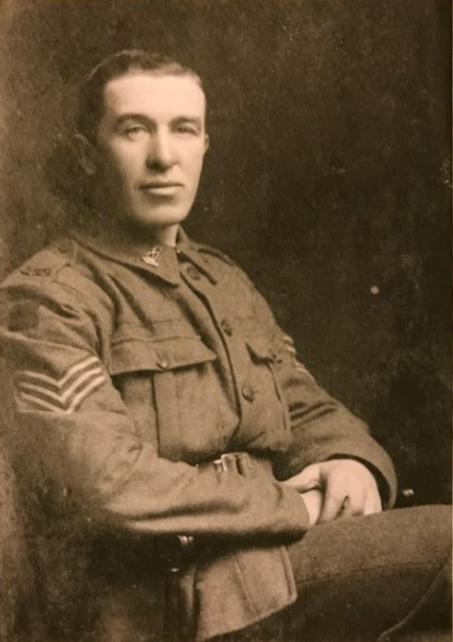Invercargill City Council is commemorating a south Invercargill soldier who fought in World War I with a Poppy Place sign depicting his name.
On Friday 3 March, a new street sign with a red poppy on it will be unveiled at a south Invercargill housing development in McQuarrie St called Scully Place after Company Sergeant Major Peter Scully DCM.
Scully’s family and RSA National President Sir Wayne ‘Buck’ Shelford will be at the event to unveil the sign and talk about the importance of commemorating our ANZACs during his three-day visit to Southland.
Poppy Places is the naming of New Zealand streets or places after people who fought in the World Wars and commemorating it with a red poppy on the street sign to ensure the people who fought in the World Wars are never forgotten.
With this latest addition, there are now five streets and a square in Invercargill recognised as a Poppy Pl – Lancaster St, Hinton Court, Checketts Place, Mepal Pl, Russell Square and now Scully Pl.
Invercargill City Council Information Management Advisor Wendy McArthur, who is helping to organise the event alongside the Awarua RSA and South Alive, said she was asked to suggest a soldier for commemoration.
“It’s not often Council gets to name a new street. Developers normally choose the names themselves but we were fortunate they asked us to do it instead.
“I feel Peter Scully represents all of those from south Invercargill that were killed in World War I. He was a true-blue Southlander who was well-known in the community for playing rugby and working at the Railways.”
Scully was born in 1887 and lived in Venus St in Georgetown before he left to fight in World War I when he was in his late 20s.
Scully enlisted early in the war as a private and had been on the Front for more than three years before he died. He was wounded twice in that time.
He was part of the New Zealand Division that liberated Le Quesnoy – a town of about 3000 people in north-east France, which had endured four years of German occupation.
Scully was killed in action on 4 November, 1918, a week before the Armistice. He is buried at Le Quesnoy.
He was awarded the Distinguished Conduct Medal in 1918 – six weeks before his death.
The unveiling of the street sign will take place at 11am on 3 March at Scully Pl, 44 McQuarrie St.
The unveiling is not the only thing McArthur is involved in for Southland Heritage Month.
She, along with historian Lloyd Esler, will be speaking at Southland’s Hidden Identities – an event for people interested in how to research and write stories about people who played a part in Southland’s history.
“So many people, especially women, have interesting lives but nothing is recorded. It would be great to get more people researching Southlanders to tell their stories.”
At the event, McArthur will be talking about the research she has done on Mabel Wachner, the Donovan family and Minnie Dean’s daughters who were both married before Dean’s death, while Esler will be sharing insights into approaches in writing up research information.
It would also include where to find resources, some through the Invercargill library, Invercargill City Council files and other places people do not think of, she said.
“Most people don’t realise that Council has files that have a lot of information about people in them. These are a valuable resource in gathering information.
“It’s also important to double check every piece of information, as what is recorded may not always be correct.”
Southland’s Hidden Identities is a free event and will take place at 6pm on 16 March at the first floor meeting room of the Invercargill City Library and Archives. Anyone wanting to come along can register by emailing archives@icc.govt.nz or phoning 03 211 1573.
Southland Heritage Month takes place across March and features activities, exhibitions and talks. More information can be found by going to https://www.facebook.com/HeritageSouthNZ.


